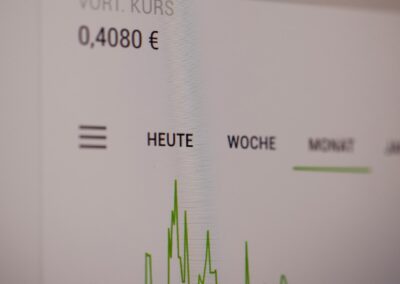Enhancing Efficiency and Comfort through IoT and Data Analytics
The Impact of Smart Building Technologies on Modern Infrastructure
The integration of smart building technologies, such as IoT sensors and data analytics, is transforming the way buildings are managed and operated. These technologies optimize building performance, reduce energy consumption, and enhance occupant comfort, making them essential for modern infrastructure. In regions like Saudi Arabia and the UAE, particularly in cities like Riyadh and Dubai, the adoption of smart building technologies is crucial for sustainable urban development.
Smart building technologies utilize IoT sensors to collect real-time data on various aspects of building operations, including temperature, lighting, humidity, and occupancy levels. This data is then analyzed using advanced analytics tools to provide actionable insights that improve building efficiency. For instance, in Riyadh, IoT sensors can monitor energy usage patterns and identify areas where energy consumption can be reduced, leading to significant cost savings and environmental benefits.
Moreover, smart building technologies enhance occupant comfort by maintaining optimal indoor conditions. In Dubai, smart buildings use data from IoT sensors to automatically adjust heating, ventilation, and air conditioning (HVAC) systems based on occupancy and external weather conditions. This ensures a comfortable environment for occupants while minimizing energy waste. The ability to create responsive and adaptive building environments highlights the transformative potential of smart building technologies in urban settings.
Leveraging IoT Sensors for Improved Building Performance
The use of IoT sensors in smart building technologies provides detailed insights into building operations, enabling more effective management and maintenance. These sensors continuously monitor critical systems and components, detecting anomalies and predicting potential issues before they escalate. In Saudi Arabia, IoT sensors in smart buildings can alert facility managers to HVAC system malfunctions or water leaks, allowing for timely interventions that prevent costly repairs and downtime.
IoT sensors also facilitate energy management by providing granular data on energy usage across different building zones. This data enables facility managers to implement targeted energy-saving measures, such as optimizing lighting schedules and adjusting HVAC settings based on occupancy patterns. In Riyadh, smart buildings equipped with IoT sensors have achieved significant reductions in energy consumption, contributing to the city’s sustainability goals and reducing operational costs.
Furthermore, IoT sensors enhance safety and security in smart buildings. These sensors can monitor access points, detect unauthorized entry, and integrate with security systems to provide real-time alerts. In Dubai, smart buildings utilize IoT sensors to enhance building security, ensuring the safety of occupants and protecting valuable assets. The comprehensive monitoring capabilities of IoT sensors make them indispensable for modern building management.
Data Analytics: Driving Efficiency and Sustainability
Data analytics is a cornerstone of smart building technologies, transforming the vast amounts of data collected by IoT sensors into actionable insights. Advanced analytics tools analyze this data to identify patterns, trends, and anomalies, providing valuable information for optimizing building performance. In the UAE, data analytics in smart buildings helps facility managers make informed decisions that enhance efficiency and sustainability.
One of the key benefits of data analytics in smart buildings is its ability to optimize energy usage. By analyzing data on energy consumption, weather conditions, and occupancy patterns, data analytics tools can recommend adjustments to HVAC systems, lighting, and other energy-intensive operations. In Dubai, this approach has led to significant energy savings and reduced carbon emissions, supporting the city’s commitment to sustainability.
Data analytics also improves predictive maintenance in smart buildings. By identifying early signs of equipment failure, analytics tools enable proactive maintenance, reducing downtime and extending the lifespan of building systems. In Riyadh, predictive maintenance powered by data analytics has enhanced the reliability and efficiency of smart buildings, ensuring continuous operation and reducing maintenance costs. The ability to leverage data for predictive insights underscores the importance of data analytics in modern building management.
Leadership and Management in Implementing Smart Building Technologies
Effective leadership and management are crucial for the successful implementation of smart building technologies. Business executives and mid-level managers in Saudi Arabia and the UAE must champion the adoption of these technologies and ensure their integration into existing building management frameworks. Their vision and commitment to innovation drive the growth of smart building initiatives, making them an integral part of the region’s urban development strategies.
Leaders must engage in strategic planning and resource allocation to support the deployment of smart building technologies. This involves collaborating with technology providers, investors, and regulatory bodies to create a conducive environment for smart building projects. In Riyadh and Dubai, strong leadership is essential to navigate the complexities of smart building implementation and to integrate these technologies seamlessly into building operations.
Project management skills are equally important in the deployment of smart building technologies. Project managers oversee the logistics of integrating IoT sensors and data analytics into building systems, from initial planning to implementation and ongoing maintenance. Their expertise ensures that projects comply with regulatory requirements and achieve financial viability, enhancing the overall effectiveness and sustainability of smart building initiatives.
Future Prospects: Advancing Smart Building Technologies
The future of smart building technologies looks promising, with continuous advancements in IoT, data analytics, and Artificial Intelligence (AI) driving the development of more efficient and responsive building systems. Future smart buildings will likely incorporate even more sophisticated sensors and analytics tools, enhancing their ability to optimize performance and reduce energy consumption.
In addition to technological advancements, new regulatory frameworks and international collaborations will play a significant role in promoting smart building technologies. By adopting best practices and sharing knowledge across borders, countries like Saudi Arabia and the UAE can lead the way in sustainable urban development. This collaborative approach ensures that smart building projects contribute to global sustainability goals and enhance the quality of urban living.
Moreover, integrating community engagement and education into smart building projects can enhance public acceptance and support. By involving local communities in decision-making processes and raising awareness about the benefits of smart building technologies, projects can gain public support and ensure long-term success. This holistic approach to sustainability aligns with the broader goals of environmental stewardship and community resilience.
Conclusion: Embracing Smart Building Technologies for a Sustainable Future
The integration of smart building technologies is revolutionizing the field of building management and urban development. By leveraging advanced technologies such as IoT sensors and data analytics, countries like Saudi Arabia and the UAE are enhancing their ability to optimize building performance, reduce energy consumption, and enhance occupant comfort. These innovations ensure that buildings are more efficient, sustainable, and aligned with modern urban living standards.
As we continue to advance in this field, the role of leadership and effective project management cannot be overstated. Business executives, mid-level managers, and project leaders must collaborate to ensure the successful implementation and maintenance of smart building technologies. Their efforts will not only enhance public health but also demonstrate the transformative power of modern technology in urban development.
In conclusion, the future of building management is bright, with smart building technologies at the forefront of this evolution. By prioritizing innovation, collaboration, and community engagement, we can create a more sustainable and resilient world, where buildings contribute to both environmental sustainability and occupant well-being.
#SmartBuildingTechnologies, #IoTSensors, #DataAnalytics, #BuildingPerformance, #EnergyConsumption, #OccupantComfort, #ArtificialIntelligence, #ModernTechnology, #BusinessSuccess, #LeadershipSkills, #ProjectManagement























